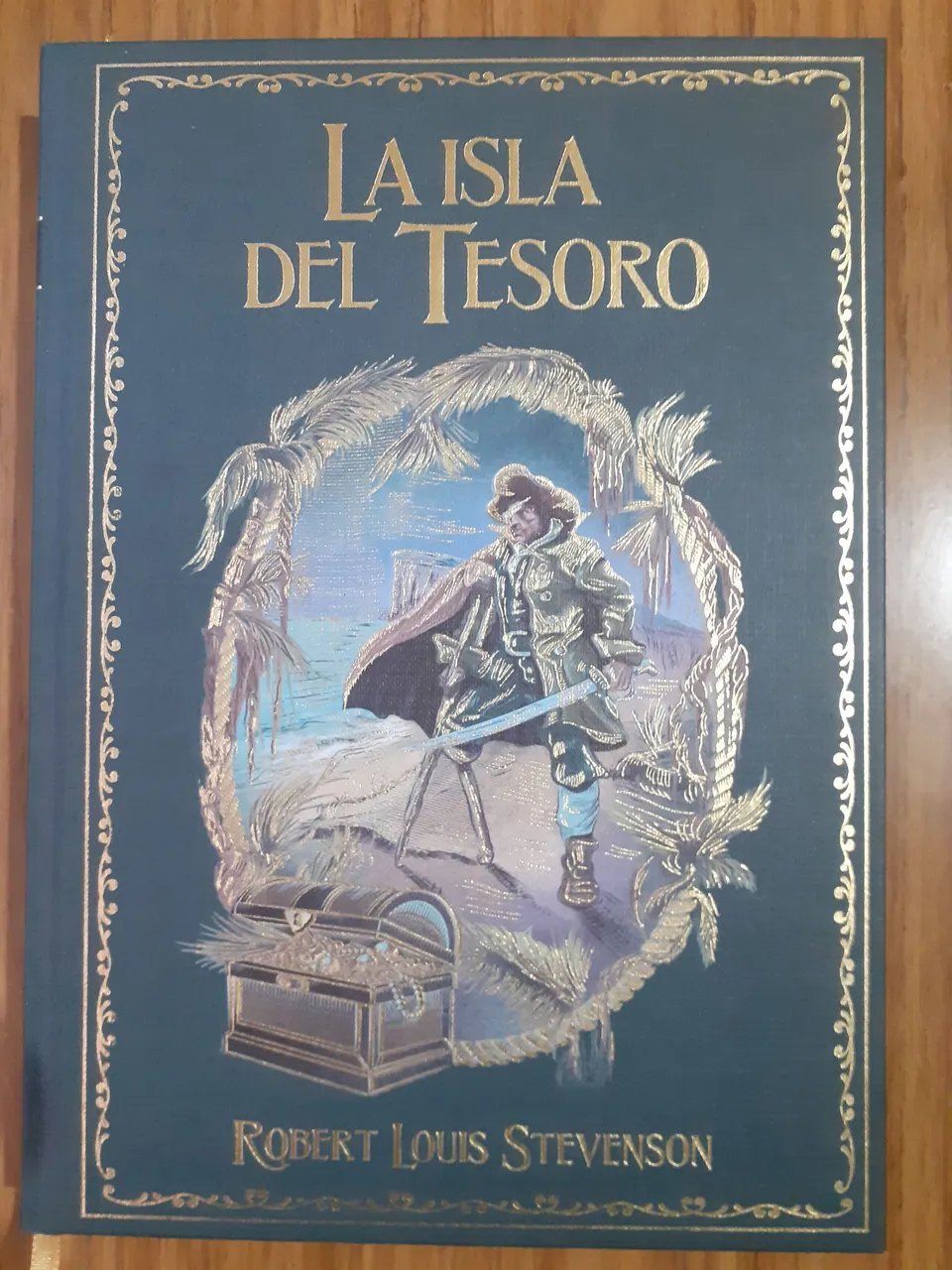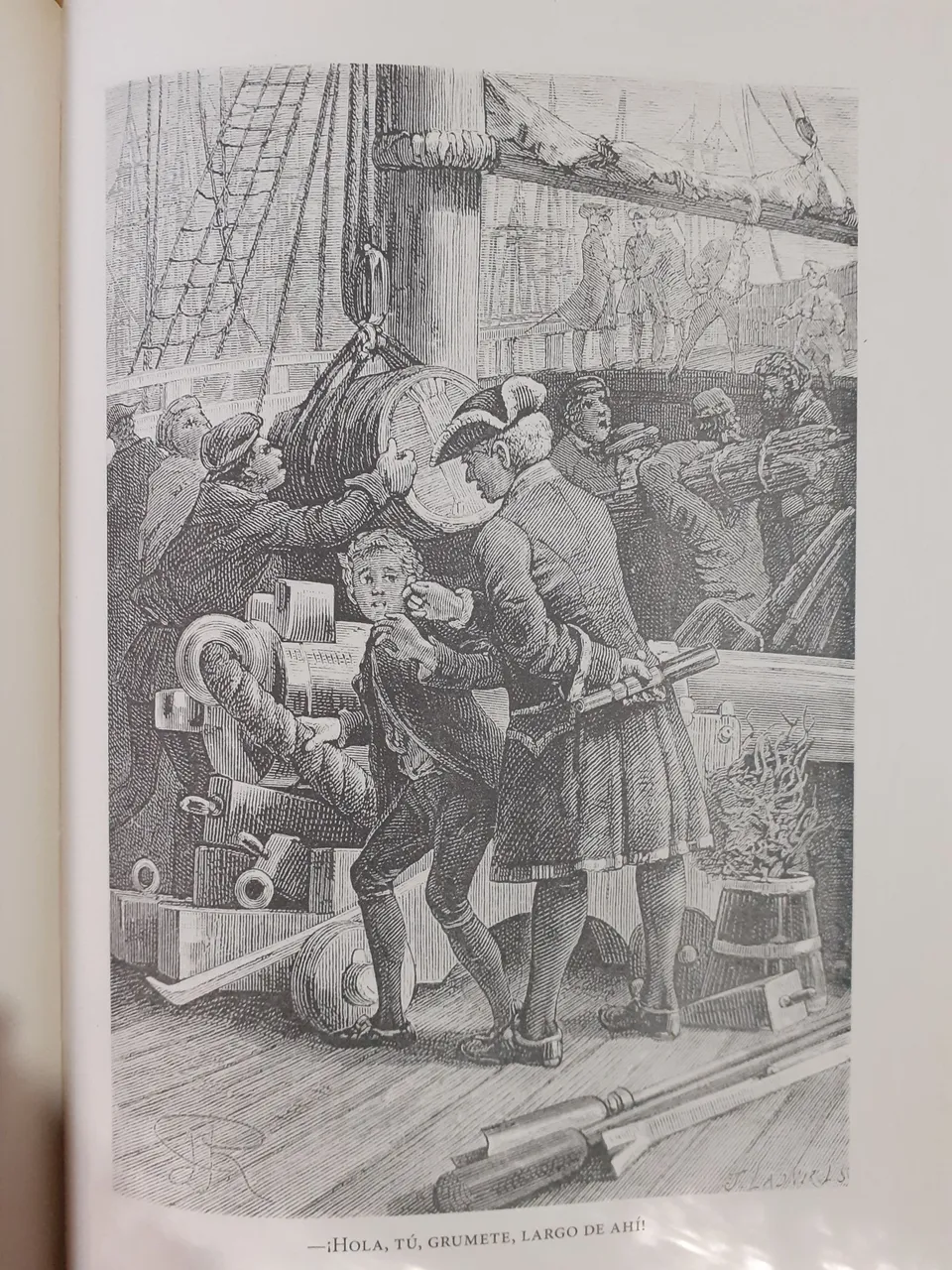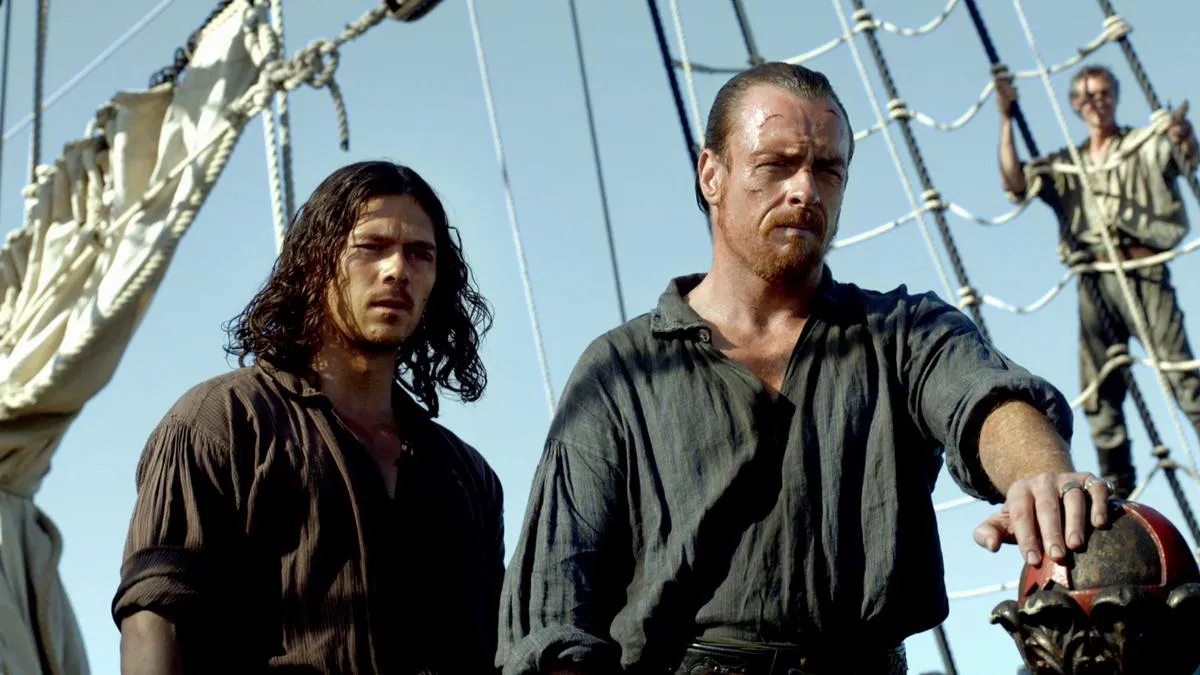Treasure Island is an excellent adventures book set in the middle of the eighteenth century in England, about pirates, a buried treasure that is sought with a map that is left by chance to a young boy who is fortunate to find a couple of honest adults with whom to partner to go in his search.
This is the second Stevenson work I have read since The Strange Case of Dr Jekyll and Mr Hyde. It didn't reached its level but only because the latter one is a masterpiece.

The best
Very good characterization of characters, especially the two main ones:
Jim Hawkins, the narrator of almost every chapter of the story, young teenage son of an inn owner who behaves like a normal teenager who is thrust into an adventure like this, having understandable reactions of elation, fear, and so on at corresponding moments; he is clever but not a genius nor the kind of child protagonist who ends up solving everything; on the contrary, regarding the development of the adventure, the actions are quite distributed in importance among the characters, it is a teamwork "without stars" although Hawkins has an important role for a couple of hasty plans of his that, although they did not turn out as he expected, he could improvise well upon afterwards.

Long John Silver, the most memorable. A wooden-legged pirate with a parrot, feared by his entire crew, with a quasi-legendary past as the quartermaster to the fictional dreaded pirate Flint, he passes for what he is not. He switches sides with ease, is tremendously cunning but with high intelligence, not just "street smarts". Although he knows how to fight, his main weapon is his cajoling words and his acting ability.
Silver to the left, Flint at right

I imagined him as Long John Silver from the masterpiece series Black Sails, which is a prequel series to this book, and I would wish the same production-directional-acting team would adapt this book following the series. Have you seen it?
The spirit of adventure
The novel would have failed greatly if it had failed to convey this, but Stevenson's pen and his choice of narrator in the boy on the voyage accomplish that effect complimentarily, that of Bilbo's "I'm going on an adventure!" in the first Hobbit movie (I don't remember if he shouts it in the book as well). And the adventure has victories and sweetness, and defeats and bitterness as would be expected, for there is no adventure if everything goes according to plan without a hitch, is there?
The Worst
One of the main reasons why I consider The Strange Case of Dr Jekyll and Mr Hyde a masterpiece is its perfect length for the story it tells: it is practically neither over nor under a paragraph. Treasure Island, although logically it would be practically impossible for it to achieve the same because it is a story that aims for a much longer length, did manage to provoke the same effect of correct length during most of the first four parts into which the work is divided (first 184 pages in my edition), but this declines considerably for the final two parts, becoming too descriptive (especially Jim's solitary sea voyage) and losing pace.
It has probably influenced these different results that, while Jekyll and Hyde was originally published as a book, Treasure Island was first published in installments in a magazine and then as a book, probably with the text as published without much of a further revision.
Nevertheless, the actual ending of the treasure hunt, as well as the subsequent events with which the novel ends, are satisfying.
*** Translated with help from www.DeepL.com/Translator (free version) ***

La isla del tesoro es una obra excelente de aventuras situada a mitad del siglo XVIII en Inglaterra, de piratas, un tesoro enterrado que se busca con un mapa que le queda por casualidad a un joven y que tiene la fortuna de encontrar un par de adultos honestos con los que asociarse para ir su búsqueda.
Es la segunda obra de Stevenson que leo desde El extraño caso del dr Jekyll y mr Hyde. No estuvo la altura de esta última, pero sólo porque esa es una obra maestra.
Lo mejor
Muy buena caracterización de personajes, en especial los dos principales:
Jim Hawkins, el narrador de casi todos los capítulos de la historia, hijo del dueño de una posada, joven adolescente que se comporta como un adolescente normal que es empujado a una aventura como esta, teniendo entendibles reacciones de euforia, miedo, y demás en momentos correspondientes; es astuto pero no un genio ni el tipo de niño protagonista que termina resolviendo todo, sino que, por el contrario, respecto al desarrollo de la aventura, las acciones están bastante distribuidas en importancia entre los personajes, es un trabajo en equipo “sin estrellas” aunque Hawkins tiene un papel importante por un par de planes apresurados suyos que, aunque no le salieron como esperaba, sí pudo improvisar bien después.

Long John Silver, el más memorable. Pirata pata de palo con un loro, temido por toda su tripulación, con un pasado cuasilegendario como contramaestre del ficcional temible pirata Flint, pasa por ser lo que no es. Cambia de bandos con facilidad, es tremendamente astuto pero con alta inteligencia, no una simple “astucia callejera”. Aunque sabe pelear, su arma principal son sus engatusadoras palabras y su capacidad de actuación.
Silver to the left, Flint at right

Me lo imaginé como el Long John Silver de la obra maestra serie Black Sails, que es una serie precuela a este libro, y desearía que el mismo equipo productivo-directivo-actoral adaptara este libro siguiendo la serie. ¿La han visto?
El espíritu de aventura
La novela habría fallado grandemente si no hubiera logrado transmitirlo, pero la pluma de Stevenson y su elección de narrador en el chico de la travesía logran ese efecto cumplidamente, el del “I’m going on an adventure!” de Bilbo en la primera película de El Hobbit (no recuerdo si también lo grita en el libro). Y la aventura tiene victorias y dulzuras y derrotas y amarguras como sería esperable, pues no hay aventura si todo sale según el plan sin ningún inconveniente, ¿verdad?
Lo peor
Una de las principales razones por las que considero a El extraño caso del dr Jekyll y mr Hyde una obra maestra es su perfecta extensión para la historia que cuenta: prácticamente ni le sobre ni le falta un párrafo. La isla del Tesoro, aunque lógicamente sería prácticamente imposible que lograra lo mismo porque es una historia que apunta a una mucho mayor extensión, sí logró provocarme el mismo efecto de correcta extensión durante la mayor parte de las cuatro primeras partes en que está dividida la obra (priemras 184 páginas en mi edición), pero esto decae considerablemente para las dos partes finales, volviéndose demasiado descriptivo (sobre todo el viaje marino en solitario de Jim) y perdiendo ritmo.
Probablemente haya influido en estas diferencias que, mientras que Jekyll y Hyde se publicó originalmente como libro, La isla del Tesoro se publicó primeramente en fascículos o por entregas en una revista y luego como libro, seguramente con cuyo texto tal cual se habían publicado.
No obstante, el final en sí de la búsqueda del tesoro, así como los acontecimientos posteriores con los que finaliza la novela, son satisfactorios.